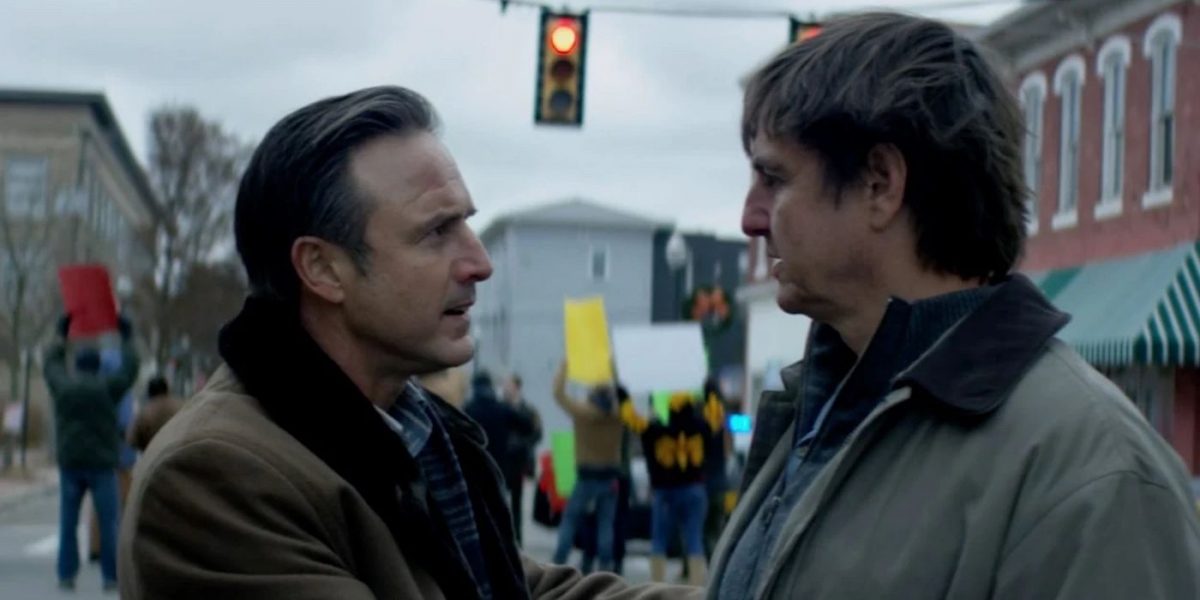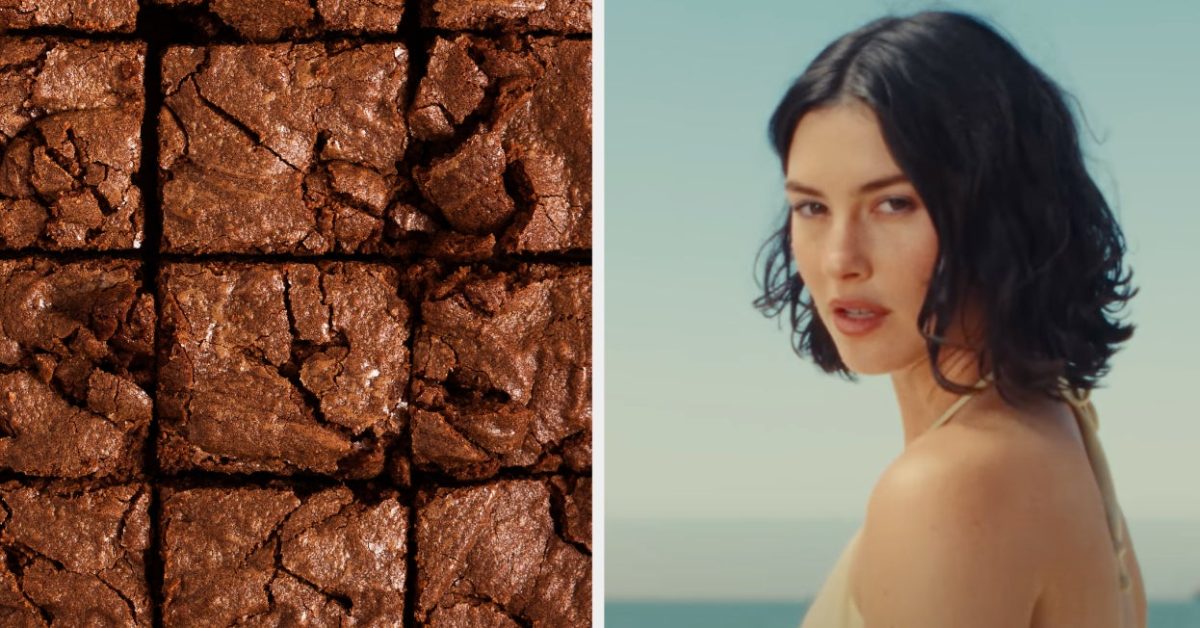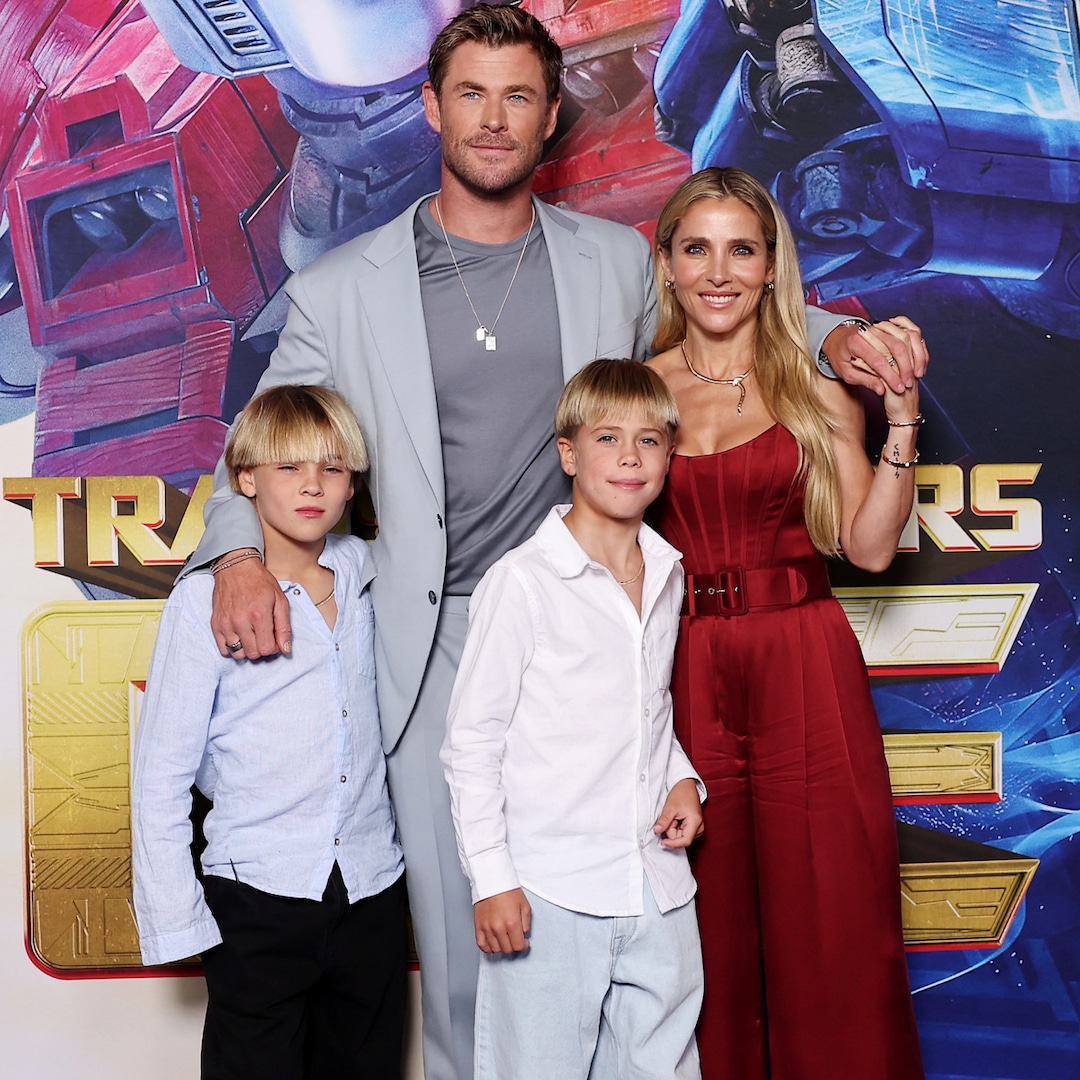
Rushed and Undermines Its Own Message
Jan 20, 2023
If you go into On Sacred Ground not knowing anything, in the beginning, you might think you’re watching a documentary. The purpose of directors Josh and Rebecca Tickell is quite clear: Establish that the story you’re about to watch is based on real events and also convey the seriousness of the subject. It works pretty well, and gets you invested in the story from the get-go. It would work even better if the rest of the movie didn’t undermine its own message.
On Sacred Ground tells the unbelievably recent story of the construction of the Dakota Access Pipeline, a massive underground canal that is able to transport hundreds of thousands of gallons of oil on a single day from North Dakota to Illinois. The project is an architectural wonder, but the problem is: It runs through Black Hills, a territory that is considered Sioux sacred ground. As protests from Native Americans mount on construction sites, a war veteran and journalist is hired to write an extremely biased story in order to downplay the oil companies’ disregard for the country’s History and culture.
COLLIDER VIDEO OF THE DAY
When it comes to business (especially oil) vs. anything else, it’s pretty easy to know which is going to be the losing side, but it’s nevertheless important to dive into the conflict and its complexities. That’s why it’s so surprising that On Sacred Ground runs shorter than 85 minutes. Not that you can’t tell a complex story in a short time, but the drama not only feels like a condensed story, but the limited runtime is noticeable during the entire film, especially when it comes to fleshing out its main event.
Image via Shout Factory
RELATED: Amber Midthunder on Her ‘Reservation Dogs’ Character and the Positive Reaction to ‘Prey’
In its first act, On Sacred Ground surprises you with an endless series of jump cuts that barely leave any room for the movie to breathe. This is a strategy widely used by a lot of action movie directors who think this is the only way to make the movie feel dynamic and urgent, but it mostly comes off as irritating. In a drama, however, it’s even weirder to see, and it barely leaves any room for the viewer to take in the reality of protagonist Daniel McKinney (William Mapother). By the end of the first act, you feel like the movie was checking mandatory empathy boxes before getting to the meat of its story: He’s a war veteran, cut. He’s not in the best headspace, cut. His wife is pregnant, cut. Their marriage is in trouble, cut.
At first, you could assume that the Tickells’ choice of camera work is to better illustrate Daniel’s PTSD, but that theory crumbles when you realize that there are still jump cuts and the camera is always moving when it’s pointing at other characters as well. Sometimes, the events are so rushed you feel like you’re watching the movie at 1.5 speed, which leads you to believe that the pace will even out once we’re introduced to the main story. And it kind of happens, but then other problems come up.
The pace of On Sacred Ground does get less frantic once Daniel gets to the Black Hills, but as the story moves forward, some white savior elements start popping in. The short running time of the movie means that subtlety is out the door, which translates to characters getting sorted into good guys and bad guys. The editor who asks Daniel to write a story is one-dimensional at best, the same way that David Arquette’s Elliot is only there to represent a looming threat — but the movie ends up forgetting about him.
Image via Shout Factory
When On Sacred Ground dedicates its time to showing the ins and outs of the protesters’ camp, the movie is at its best. It shows how minorities got used to considering every possible scenario in order not to be depicted as violent by the media — even though their claims are legitimate. Their organization and concern about behavior ring uncomfortably real to anyone who’s seen up close how the police react to minorities protesting and then how it gets portrayed on TV.
It’s a shame, though, that in 2023 a script (co-written by the directors and Mapother) would still need to lean on white savior tropes to get its message across. We never really get to know about the Native American characters in the story or delve into their personal issues like we do with the white protagonist. This gets even worse when one of the Native American characters are basically presented to Daniel as magical. This not only takes away from the very real issue presented, but also feels cheap when you realize it’s only being used as a means to symbolize the main character’s transformation. But it gets worse.
In order to convey Daniel’s final transformation — AKA the white person learning that brutalizing Native Americans is wrong — On Sacred Ground chooses to show it with a wondrous moment that contains either horror or fantasy elements. It’s unbelievable to have to write this, but…you don’t need to go through a life-changing experience to empathize with any minority. You don’t need to undergo a magical journey to open your eyes and realize that huge companies steamroll whatever’s in their way in the name of profit. And, most importantly, you don’t allude to brownface to make a point. To illustrate Daniel’s transformation and rebirth at a certain point, On Sacred Ground does the very questionable decision of showing the character “painting” his skin with mud, just to show something we could already understand by the movie’s progression. He’s not a Native American person because he painted his skin brown, guys. And he can be an advocate without embarrassing himself.
Image via Shout Factory
What’s worse, the sequence is quite long when you consider that at that same turning point in the movie, all that Native American characters get are brief shots during protests with “oh-that’s-so-sad” music that minimizes police brutality at best. Aside from that, the movie forgets that its protagonist was in dire need of money and suffered from PTSD, because all of that gets solved once he plasters mud on his face. But the consequences of him not writing a story he was hired to write — which would be a huge, real-world comment about what happens when you pick the losing side — are never shown.
In the end, On Sacred Ground is able to escape the full extent of a white savior story because the ending in real life is not happy, and not exactly finished as well. The movie is sensible enough to feature Native American characters and actors and give them some space, but they’re never made a protagonist in their own story. While a short runtime isn’t always damning to a story, sometimes you do need that extra half hour to make whoever’s watching care about the characters — especially in a story of this magnitude.
Rating: C-
On Sacred Ground is in select theaters and available on demand now.
Publisher: Source link
Eat Some Food And I’ll Recommend You A Gracie Abrams Song To Listen To
"That’s So True!"View Entire Post › Disclaimer: This story is auto-aggregated by a computer program and has not been created or edited by filmibee.Publisher: Source link
Dec 29, 2024
Emma Roberts Shares Rare Photos of Lookalike Son on His 4th Birthday
Emma Roberts is celebrating another year around the sun for her baby boy. The American Horror Story: Delicate actress marked her and Garrett Hedlund’s son Rhodes 4th birthday with a series of sweet pictures. Showcasing just how much little Rhodes…
Dec 29, 2024
It's Time For The Ultimate "Would You Rather": Hot Guys Vs. Christmas Food Edition
Decisions, decisions.View Entire Post › Disclaimer: This story is auto-aggregated by a computer program and has not been created or edited by filmibee.Publisher: Source link
Dec 28, 2024
Chris Hemsworth and Elsa Pataky Share Rare Photo with Their 3 Kids
Chris Hemsworth’s family Christmas is truly something to marvel over. In honor of the holiday season, Elsa Pataky shared a photo featuring her, her husband, their daughter India, 12, and twin boys Sasha and Tristan, 10. The Fast and Furious…
Dec 28, 2024











